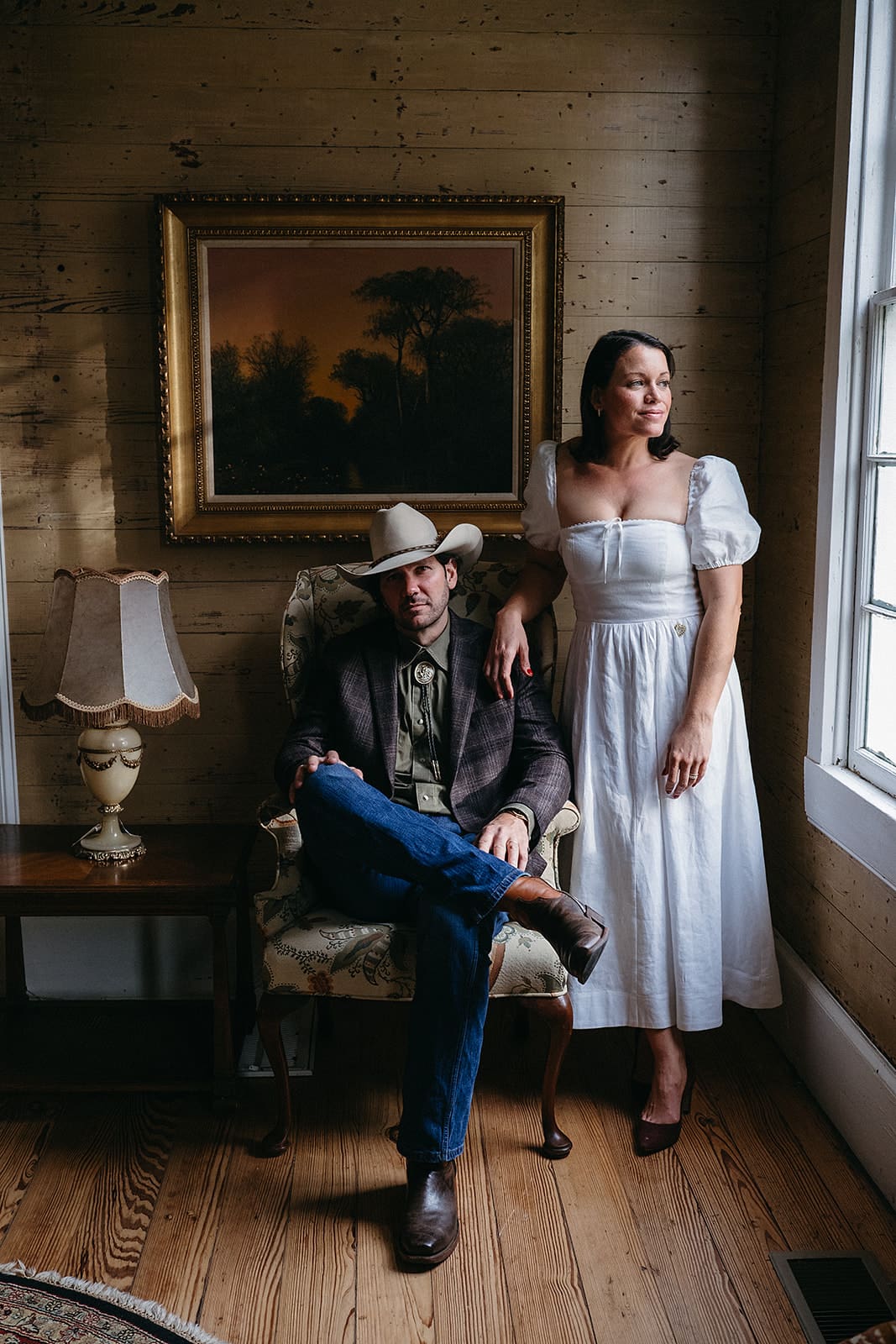The Hard Sell of Meghan’s Soft Life
Meghan Sussex’s Netflix show, an eight-episode setup for her new lifestyle brand, prompted decidedly mixed reactions. But what does Meghan owe us, really — and how much more is she willing — or able — to give? “Here we go; it’s a business!” Meghan Sussex, née Markle, exclaims at the end of her new Netflix lifestyle show, With Love, Meghan. Surrounded by friends and family during a celebratory brunch, Sussex stating this aloud explicitly reveals to viewers that the cozy domesticity she’s spent the previous eight episodes crafting — the sprinkling of edible flowers atop cookies and frittatas, the piping of garden berry preserves in between cake layers and parfaits, the beekeeping — is all part of her new brand, which she’ll be selling soon under the label As Ever. “I’ve always been curious,” Sussex says in the closing voice-over, alluding to a goal traceable to her former lifestyle blog, the Tig: “Sharing all those discoveries and everything that I love with the people that I love.” With Love, Meghan is already a success by the most basic metric: The same week it debuted, Netflix renewed it for an already filmed second season, and has since confirmed it’s a “passive partner” in the As Ever retail brand. By these standards, Sussex has crafted a lovely show with attainable cooking and hosting tips. With the simple ethos of romanticizing the ordinary moments in your life and doing something extra for your guests, Sussex makes now-viral one-pot pastas with vibrant produce and homemade candles with her own beeswax, the kind easily found at local co-ops for this exact purpose. However, “it’s a business!” is a pointed acknowledgment of commercialization. Any brand — from McDonald’s to KitchenAid — is built on a specific identity. But a celebrity brand, especially one with a woman at the helm, whether it’s an independent product line, TV show, or even an endorsement, represents an extension of a personal image, forcing each woman who takes this route to contend with what exactly they’re willing to put up for sale: Their expertise and exquisite taste? Their public and private lives? Their families? Their most intimate moments and desires and joys? Ideally, for the domestic goddess, the answer seems to be some overstimulating combination of all of it. This is a nearly impossible ask for any woman who enters this realm; even more so for a member of the British Royal Family who’s experienced violent racism on a global scale. And much of the outsized public response to With Love, whether it realizes it or not, contends with how Sussex fits (or doesn’t) within existing domestic goddess archetypes: the Family Woman, the Everywoman, the Savvy Pro. All are expressions that Sussex’s specific circumstances often don’t allow. She can’t be the Family Woman like Chrissy Teigen or every tradwife influencer we see online, because this would pose blatant security risks to her family and open them up to more vitriol. Clearly, as a Hollywood actress-turned-literal-British Royal, she can’t be an Everywoman. Even Sussex herself acknowledges she’s not the Savvy Pro. Throughout the show, she proclaims she lacks the culinary experience to speak with authority. Part of this, I suspect, is self-preservation: Sussex either already has or could easily obtain this knowledge before the cameras begin to roll, but the Duchess knows she won’t be granted grace by an audience poised to demand more from her, as a first-time host, than anyone else: in short, no learning curves or missteps (there seems to be a visible fear in her eyes of making a mistake). And, presuming these are deliberate production calls, while her holding back also seems to be an attempt to act as an audience surrogate, or show how much there is to learn, she often makes odd choices. For example, she claims she “never knew” you could brine chicken in milk, which suggests she has never heard of buttermilk chicken. She also tells Vicky Tsai, the co-founder of skincare brand Tatcha, that she’s never heard of a “slurry” despite “cornstarch slurry” being an incredibly common phrase used in popular recipes. It’s a proactive humility frequently demanded of women combining culinary knowledge with homemaking content — especially women of color. Netflix So where does that leave Meghan in the genre’s crowded pantheon? Champagne glass in hand, Sussex stakes her claim to the role of upper- and upper-middle-class tastemaker and valuesetter. In doing so, she follows the Martha Stewart route, arbitrating the acceptable aesthetics within those social classes and punctuating her product recommendations with occasional references to more humble beginnings. Whether or not she has the taste required is, obviously, a matter of taste — and one that’s been legislated in review after review. But more glaringly — and disappointingly — in this role, Sussex chooses to uphold the familiar aesthetics of this archetype: particularly, its commitment to staying within the bou


Meghan Sussex’s Netflix show, an eight-episode setup for her new lifestyle brand, prompted decidedly mixed reactions. But what does Meghan owe us, really — and how much more is she willing — or able — to give?
“Here we go; it’s a business!” Meghan Sussex, née Markle, exclaims at the end of her new Netflix lifestyle show, With Love, Meghan. Surrounded by friends and family during a celebratory brunch, Sussex stating this aloud explicitly reveals to viewers that the cozy domesticity she’s spent the previous eight episodes crafting — the sprinkling of edible flowers atop cookies and frittatas, the piping of garden berry preserves in between cake layers and parfaits, the beekeeping — is all part of her new brand, which she’ll be selling soon under the label As Ever. “I’ve always been curious,” Sussex says in the closing voice-over, alluding to a goal traceable to her former lifestyle blog, the Tig: “Sharing all those discoveries and everything that I love with the people that I love.”
With Love, Meghan is already a success by the most basic metric: The same week it debuted, Netflix renewed it for an already filmed second season, and has since confirmed it’s a “passive partner” in the As Ever retail brand. By these standards, Sussex has crafted a lovely show with attainable cooking and hosting tips. With the simple ethos of romanticizing the ordinary moments in your life and doing something extra for your guests, Sussex makes now-viral one-pot pastas with vibrant produce and homemade candles with her own beeswax, the kind easily found at local co-ops for this exact purpose.
However, “it’s a business!” is a pointed acknowledgment of commercialization. Any brand — from McDonald’s to KitchenAid — is built on a specific identity. But a celebrity brand, especially one with a woman at the helm, whether it’s an independent product line, TV show, or even an endorsement, represents an extension of a personal image, forcing each woman who takes this route to contend with what exactly they’re willing to put up for sale: Their expertise and exquisite taste? Their public and private lives? Their families? Their most intimate moments and desires and joys? Ideally, for the domestic goddess, the answer seems to be some overstimulating combination of all of it.
This is a nearly impossible ask for any woman who enters this realm; even more so for a member of the British Royal Family who’s experienced violent racism on a global scale. And much of the outsized public response to With Love, whether it realizes it or not, contends with how Sussex fits (or doesn’t) within existing domestic goddess archetypes: the Family Woman, the Everywoman, the Savvy Pro. All are expressions that Sussex’s specific circumstances often don’t allow. She can’t be the Family Woman like Chrissy Teigen or every tradwife influencer we see online, because this would pose blatant security risks to her family and open them up to more vitriol. Clearly, as a Hollywood actress-turned-literal-British Royal, she can’t be an Everywoman.
Even Sussex herself acknowledges she’s not the Savvy Pro. Throughout the show, she proclaims she lacks the culinary experience to speak with authority. Part of this, I suspect, is self-preservation: Sussex either already has or could easily obtain this knowledge before the cameras begin to roll, but the Duchess knows she won’t be granted grace by an audience poised to demand more from her, as a first-time host, than anyone else: in short, no learning curves or missteps (there seems to be a visible fear in her eyes of making a mistake). And, presuming these are deliberate production calls, while her holding back also seems to be an attempt to act as an audience surrogate, or show how much there is to learn, she often makes odd choices. For example, she claims she “never knew” you could brine chicken in milk, which suggests she has never heard of buttermilk chicken. She also tells Vicky Tsai, the co-founder of skincare brand Tatcha, that she’s never heard of a “slurry” despite “cornstarch slurry” being an incredibly common phrase used in popular recipes. It’s a proactive humility frequently demanded of women combining culinary knowledge with homemaking content — especially women of color.
/cdn.vox-cdn.com/uploads/chorus_asset/file/25934012/WLM_240613_Unit_00350RC.jpg) Netflix
Netflix
So where does that leave Meghan in the genre’s crowded pantheon? Champagne glass in hand, Sussex stakes her claim to the role of upper- and upper-middle-class tastemaker and valuesetter. In doing so, she follows the Martha Stewart route, arbitrating the acceptable aesthetics within those social classes and punctuating her product recommendations with occasional references to more humble beginnings. Whether or not she has the taste required is, obviously, a matter of taste — and one that’s been legislated in review after review. But more glaringly — and disappointingly — in this role, Sussex chooses to uphold the familiar aesthetics of this archetype: particularly, its commitment to staying within the bounds of multimillionaire social codes and in its noticeable lack of other Black people on either side of the camera.
In both the Netflix Harry & Meghan documentary and this show, Black people (especially non-blood relatives) are consistently absent; Sussex seemingly only brings them in as expert voices to provide context about Britain’s racist past and present, or as emotional support for the racism she’s experienced. In With Love, which centers joy and thus includes no formal segments about racial terror or slavery, the omission feels even more glaring. Sussex features only one Black friend, Tracy Robbins, a Montecito, California, fashion designer with her own brand, but in contrast to the lengthy intros that women like former Argentinian athlete Delfina Blaquier — who comes from one of Argentina’s wealthiest families, as an aside — get, we learn almost nothing about Robbins as a person and certainly nothing about her business. There appear to be no Black chefs, of any gender, invited to share the stage with Roy Choi, Ramon Velázquez, and Alice Waters. With the dearth of Black inclusion elsewhere, it feels like Robbins ends up getting sandwiched into a group hang, helping Sussex get the party ready for their two other white friends. It’s startlingly unequal treatment.
It’s also a missed opportunity. There are moments that reveal what a version of this show that leans more into Black and other diverse perspectives could have been. The episode with Tatcha co-founder Tsai shines brightly, as the two women make dumplings, discuss the healing power of Japanese kintsugi, and the nourishing benefits of washing hair and skin with water from the first rinse of rice. Chef Roy Choi gets space to briefly address the anti-Asian backlash against MSG; it’s refreshing for a genre that rarely gets political. Given how much these episodes stand out, it could have been even more impactful — and considerate — for Sussex to give Black chefs and business owners a similar platform to showcase their cultures, given that Black women have been her staunchest supporters since she revealed the racism she faced from both within and outside the British Royal Family.
Even given the Royal constraints upon her, Sussex has the latitude to break the mold of the lifestyle brand by centering more Black voices as arbiters, as well, especially considering how few Black women have been given their own cooking or lifestyle shows — along with continued support from streaming platforms or networks. It’s possible that the lack of Black voices is a response to anti-DEI sentiments sweeping the country or producer-driven decisions, but this feels unlikely given the high praise Netflix CEO Ted Sarandos gave her and Prince Harry, and in its investment in As Ever — the latter in particular suggests the company has given Sussex much more latitude than other talent. It’s difficult for me to believe that the show’s lack of Black people is the result of a fight Sussex fought and lost rather than a willful negligence by those involved.
/cdn.vox-cdn.com/uploads/chorus_asset/file/25934007/With_Love_Meghan_n_S1_E3_00_21_51_00R.jpg) Netflix
Netflix
It’s especially jarring to see how few Black people appear in her show when, in the midst of critique, it is Black women taking to social media platforms like TikTok, Threads, and Twitter to defend Sussex and praise With Love. It is Black women writing missives across personal blogs and large publications, exploring Sussex’s show in the context of the criminalization of Black female domesticity post-Emancipation and during the Jim Crow Era; these women see in her the “soft life” through which many are seeking to combat generational trauma, particularly after the 2024 election ushered in another Trump era and more restrictions on civil rights for marginalized groups. It’s undeniable that it would have meant a lot to many Black women who support Sussex to see themselves reflected in this show in more ways than the appearance of one Black friend and an aside about how much Sussex loves soul food.
The reality, though, is that Sussex has found success without needing to uplift Black women. It’s a sobering reminder that the same systems that exposed her to danger and despair are the same systems that protect her from critique for a glaring oversight.
Despite her missteps and the harassment she received, though, Sussex has used her charisma, talent, and yes, the cultural power she’s gained by becoming a British Royal. In doing so, Sussex ushers in a new domestic goddess archetype that we don’t quite know what to do with because we haven’t seen it yet in our digital age — the IRL Princess/Lifestyle Guru/Entrepreneur. The self-made millionaire whose husband is the son of the King of England. The biracial Black woman who has been made into an almost Civil Rights icon but barely acknowledges Blackness in her joyous content. The Duchess whose honey you can order online.
The questions remaining: Will she seize this opportunity in its entirety, and what that might look like? And what will the public ultimately allow?
Sussex is, of course, no stranger to public opinion. She’s one of the most harassed public figures in recent history, largely because of her Blackness and people’s distaste for seeing a Black woman with wealth, love, and happiness. But as someone transitioning from professional acting and a lifestyle blog to royalty, then directly into Netflix-promoted/-backed content and branded products, she will now have to contend with the public in a new way: listening to feedback rather than fearing it. She’s used to this danger and the roar of a public that can never be satiated. What she’s not used to is trying to sell a product to this many people.
Of course, many Sussex critics are racist, loyal to the monarchy to a disturbing degree, determined to hate her no matter what she does, and therefore not worth considering. Additionally, many dislike Sussex’s content because of their ambivalence or political resistance to the monarchy, and who feel a genuine discomfort with its display of wealth and power. As a matter of cultural criticism, it must be noted that Sussex cannot be separated from this wealth and power.
Sussex may be colloquially known as Meghan of Montecito now, an LA girl at heart, but she is also — as we are reminded periodically — Meghan, Duchess of Sussex. Even though she and her husband have stepped away from the monarchy, she is still titled and part of that institution, and people will have emotional reactions to that, like they have for as long as monarchies have existed.
It feels smart, then, for Sussex’s show to focus (however lightly) on sustainability: raising chickens with her son Archie, eating from her own garden, and carefully reminding the viewer that she didn’t always have this kind of soft life and is aware that not everyone does. But with the inevitable inclusion of rich friends, designer clothes, and fresh produce (which themselves have become signifiers of wealth during inflation and tariffs), the show might conjure resentment. Yes, many who complain might be jealous or harbor racial contempt. But we also live in an era inequitable enough that the question must be asked: How much room do average Americans have for public aspiration right now? When people look at the rich, do they see lifestyles they can one day attain, or do they see all of the material things they will never have?
Meghan, Duchess of Sussex (as she reminds us in the credits), will never be divorced from these questions; even as a new archetype, she can only work within those boundaries. Ultimately, what we, the public, want from Sussex is what we want from every domestic goddess, from every woman existing in public. We want everything. We want nothing. We want her to be constantly exposed and vulnerable. We want her to disappear. We want her to champion our social causes and embody our political values. We want her to shut up about politics. We want her to be relatable. We want her to be an expert in her field and teach us something new.
Frankly, and professionally, she does owe us both everything and nothing at all. As a TV host largely dependent on the long-term ability to attract viewers (following the completion of her deal with Netflix), Sussex has both a responsibility to use her power carefully and a right to break free of all she’s endured to do her own thing. If it’s this disorienting for me to watch it, I can’t imagine how confusing it must be for her to live it.













































































